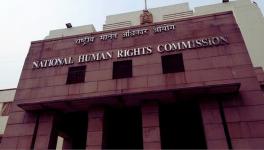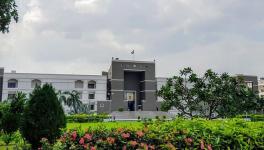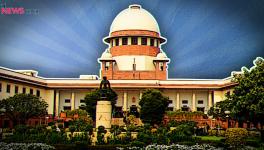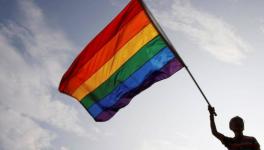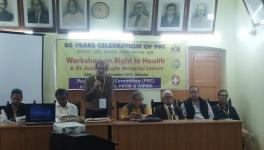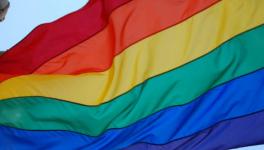What Next? The Supreme Court Judgment on Section 377 and the Struggles Ahead
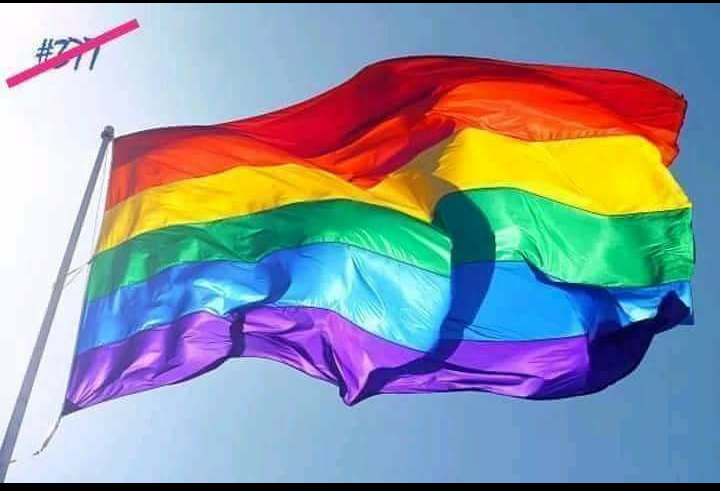
On September 6, 2018, the nation received an overwhelming news, as the Supreme Court read down the judgment on section 377. This day makes us all witnesses in the historicity of the times when a long pending desirable judgement was awaited from the highest body of the judiciary. The judgement highlights many of the concerns that lie underneath the social structure of the Indian society, in particular, encapsulating the social realities - notions of individuality, discrimination, isolation, and exclusion.
The isolation, in this particular case as mentioned, crushes “the values of privacy, choice, freedom of speech and expressions”. It emphasises that “the recognition of identity with dignity and privacy of human beings constitute the cardinal four corners of our monumental Constitution forming the concrete substratum of our fundamental rights…” It puts into consideration the fact that the “non-acceptance by the societal norms or the notion of punishment by law affects the identity of the being”, pushing the individual into the margins making the identity more vulnerable in the spectrum of the mainstream society.
“Sexual orientation is an integral and innate facet of every individual’s identity”.
Towards a gendered, inclusive society
Sex, as we recognise in the mainstream understanding, is the description of a body as a male, or a female. Our world begins and ends in the boxes of pink and blue. Gender, whereas, is assigned with the birth of the individual circumscribing to the gendered understanding of division of labour. Meanwhile, there are identities all around us which we fail to recognise, understand and include in our everyday practice and processes of life. The discrimination, exclusion and bullying of such individuals starts from the very primary unit that is, family, continuing in schools, colleges, university spaces and the work environments. Given the ground realities, the fight is yet to begin for the gender-inclusive forums, infrastructure, and employment at the level of different institutions, considering the absence of the sexual minorities in the public spaces. The denial of fundamental rights to an individual violates the constitutional principles, along with in violation of human rights. As judgment rightly points out, “we owe them an apology”, for the mainstream society, the sexual minorities are always ‘absent in their presence’ out there. One must not forget the courage that it takes for an individual to accept and speak in the public about its gendered identity, given the social stigmas attached to it. Now, the judgement recognises the ‘choice’, ‘privacy’ and the ‘desire’ of the individual, but it will take a long road for the masses to accept this reality in its absolute sense.
“A section of people or individuals who exercise their choice should never remain in a state of fear.”
The new media paradigm
The national capital has witnessed a pride march in past years, followed by some of the other metro cities, but the news coverage of such social movements has been negligible over the years in the mainstream print as well as television media. Social media platforms provide opportunities as an alternative form of media to publicise and share the event, and to create network of like-minded people across the country. Nevertheless, the use of social media is again limited, and follows individualistic approach, as also witnessed in other social movements, where the access to such platforms is denied to individuals, given the difference in social and economic hierarchies and inequalities. It is indeed very shameful that we denied the rights to certain individuals based on their choice of the partner and sexual orientation, due to the taboos and stigmas attached to it for the decades even after independence.
Indeed, the individualism of such a person, having interest in the same sex relation, cannot be in the view of a stigma. Yet, there are multiple layers of fear, potential threat, and intimidation in their families, neighbourhood, peer-groups, educational as well as professional lives that warrant protection for the individuals under law. Further, the harassment, abuse, and violence faced by the (sexual) minorities is rampant on the one hand, and invisible on the other, due to the lack of access to the registration of cases of crime. Now, as per legal provisions, the court understanding their plight of life-situation empowers them to avail services and report the cases of violence or perpetual violence by service providers too (hospitals, police, offices, etc.).
However, there is a need to create an environment where there is no alienation or bullying in the circumference of their ‘life choices’. The progressive legal ethos has to transcend beyond the legal framework.
Equating the Rights in a Democratic State
The judgment puts across the argument that the rights are not merely determined based on percentage of populace, which, in this case, will be a miniscule population, but “on a real scrutiny of the existence of right and denial of the same”. The five-judge bench headed by Dipak Mishra, Chief Justice of India and comprised of A.M.Khanwailkar, R.F. Nariman, D.Y. Chandrachud and Indu Malhotra passed unanimous judgment stating that, “there is a constant need to transform the constitutional idealism into reality by fostering respect for human rights, promoting inclusion of pluralism, bringing harmony, unity amongst diversity, abandoning the idea of alienation …”. Keeping in the mind the needs of the weaker sections, Supreme Court, as the final arbiter of the Constitution, upheld the judgment in favour of those who were denied the joy of fundamental rights. The judgment accommodates the excerpts from the international judgments on “same-sex marriages” evoking “the realities of modern life”.
The constitution must also reflect the aspirations and the intent of the democracy. Along with equal access to freedom and liberty, equal opportunity guarantees are must. The challenge lies in the eradication of deep-embedded systematic discrimination at all levels. The choice of a partner is to be treated as a “consensual activity, reflective of consensual choice”.
Equality being the edifice of constitutional rights, it must address the attention towards the rights of the minorities. The judgment has lifted the mask of shame and guilt from those who were living under the constant fear of criminalisation. A democratic state must let the ethos of tolerance and harmony prosper against the politics of differences and hatred. Finally, yet importantly, sexual orientation is a natural biological phenomenon, natural and independent of religious, social, and cultural complexities.
Author is research scholar at Jawaharlal Nehru University, Delhi
Get the latest reports & analysis with people's perspective on Protests, movements & deep analytical videos, discussions of the current affairs in your Telegram app. Subscribe to NewsClick's Telegram channel & get Real-Time updates on stories, as they get published on our website.









